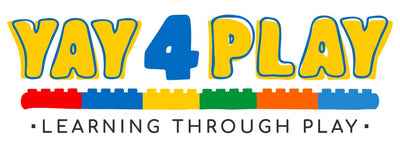Help your child develop the critical skills that they need to navigate an uncertain and increasingly complex world. And you can achieve this in a playful way!
Play is one of the most important aspects of a child’s development into adolescence and beyond. Playing in a structured way ensures that your child develops the breadth of skills they need to be successful at school – and in their own lives.
Learning happens through play when the activity:
- Is experienced in a joyful way.
- When your child finds meaning in what they are doing or learning.
- When your child is active and engaged.
- When there is iterative thinking – in other words, your child is able to experiment and test out hypotheses.
These are the 5 key areas that your child needs in order to successfully thrive in the world today and into the future:
1. Creative
It’s so important to have great creative skills so that we can develop new solutions to problems. When we are creative we are more open to new experiences and to generating a whole wealth of ideas.
Examples of creative skills are:
Creating new ideas, expressing them and transforming them into reality, being ok with ambiguity, exploring possibilities, evaluating ideas, identifying the best solution.
2. Social
We want our child to be a strong communicator and to develop positive relationships with their family and friends.
Examples of social skills are:
Collaboration, communication and perspective-taking. Sharing ideas, negotiating rules and building empathy.
3. Cognitive
When we have strong cognitive skills we are able to learn how to solve complex tasks in all types of settings - at school, work, or in our private life.
Examples of cognitive skills are:
Concentration, problem solving, working memory and flexible thinking. Learning to tackle comp By having strong physical skills, we exercise our minds and bodies to maintain wellbeing towards a successful life.
4. Physical
We want our children to have really good physical skills so that they have a focus on wellbeing.
Examples of physical skills are:
Being physically active, understanding movement and space through practicing sensory-motor skills. It’s also important to have spatial understanding and develop an active and healthy body.
5. Emotional
This is a way of developing resilience to meet the challenges and problems that are part of life.
Examples of emotional skills are:
Understand, manage and express emotions by building self-awareness and handling impulses. Staying motivated and confident when there are obstacles and challenges in life.
